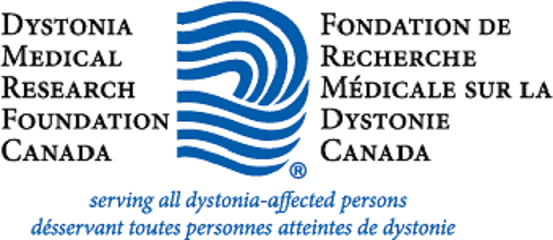
Federal and provincial governments provide income support to Canadians with dystonia in the form of tax credits and saving accounts. To help simplify the process, we have compiled a list of tax credits that may apply to your situation and needs.
Please click here to find an overview on some of the programs available that may be relevant for your situation. As well, feel free to reach out to us - email: info@dystoniacanada.org to find out more.
Click here to access our Federal Disability Supports page.
For eligible persons, you can find a Free Tax Clinic at this Government of Canada website here.
- 1. Federal Government Tax Credits and Benefits
- The Disability Tax Credit (DTC) is a non-refundable tax that helps individuals living with a ‘severe and prolonged impairment in physical or mental functions’ receive credit on their annual personal taxes. You must first meet the requirements and then apply to the federal government in order to claim the DTC on your income tax.
- The federal government issues credits for the Medical Expense Tax Credit. Click on the link for further details on items that can be claimed and how to file a claim.
The Canada Pension Plan disability benefit (CPP-D) is a taxable monthly payment that is available to people, under the age of 65, who have contributed to CPP and who are not able to work regularly at any job because of a disability. There are two types of disabilities through which a dystonia patient may be eligible to go through: severe and prolonged. According to CPP Disability:
- Severe means that you have a mental or physical disability that regularly stops you from doing any type of substantially gainful work.
- Prolonged means that your disability is long-term and of indefinite duration or is likely to result in death.
- Individuals must have both disabilities simultaneously and be under the age of 65 in order to qualify for CPP Disability.
The CPP-D benefit is not designed to pay for such things as medications and assistive devices.
- The Registered Disability Savings Plan (RDSP) is a long-term savings plan to help Canadians with disabilities, under the age of 60, and their families save for the future. This savings plan helps parents and others save for the long-term financial security of a disabled person.
- Launched in 2013, the Family Caregiver Tax Credit is a non-refundable credit that provides tax relief to those who care for a person who is dependent on the individual because of an impairment in mental or physical functions. The family caregiver amount is not tied to the disability tax credit.
- To learn more about provincial and other federal tax benefits, visit the Canada Benefits website. It is a useful tool where individuals view available tax credits and programs based on their individual circumstances
- As of January 3rd, 2016, the Employment Insurance Compassionate Care Benefits were extended from 6 to up to 26 weeks. These benefits can also be taken within an expanded period of 52 weeks (up from 26 weeks) and can be shared between family members.
- The Canada Revenue Agency provides general information about all the above related disability credits on their website here. You can view short video segments that discuss each disability related tax credit.
- The Disability Tax Credit (DTC) is a non-refundable tax that helps individuals living with a ‘severe and prolonged impairment in physical or mental functions’ receive credit on their annual personal taxes. You must first meet the requirements and then apply to the federal government in order to claim the DTC on your income tax.
- 2. Private Insurance
Individuals who are under 65 with private insurance will receive coverage for cervical dystonia, blepharospasm, hemifacial spasm. For questions related to your specific case, you will need to contact your provider to learn more about your coverage options.
- 3. Provincial Support Programs
Please click here for a provincial breakdown
Disability Assistance - BC
Disability Alliance BC. You can find their 2019 Dystonia Vancouver Symposium Presentation here.Alberta Blue Cross Non-group coverage
Ontario Disability Support Program
For a printable version of this information, click here.
- 4. Employment Related Resources
Finding employment with dystonia, click here
Legal resource information, click here
Please note: DMRF Canada takes no responsibility for the accuracy, currency, reliability, and correctness of any information included in the Information provided by third parties to the Dystonia Canada web site nor for the accuracy, currency, reliability, and correctness of links or references to information sources (including Internet Sites) outside of the Dystonia Canada web site.
Links to other Internet Sites are for information only. Care has been taken in providing these links as suitable reference resources. However, due to the changing nature of the Internet content, it is the responsibility of the users to make their own investigations, decisions, inquiries about the information retrieved from other Internet Sites. Providing these links does not imply any endorsement, non-endorsement, support or commercial gain by DMRF Canada. Please consult a professional before taking any further action.
